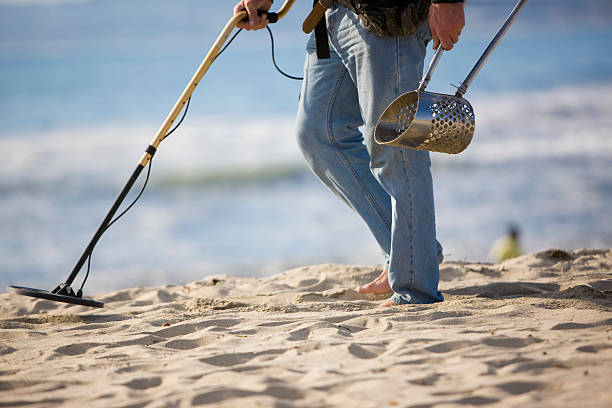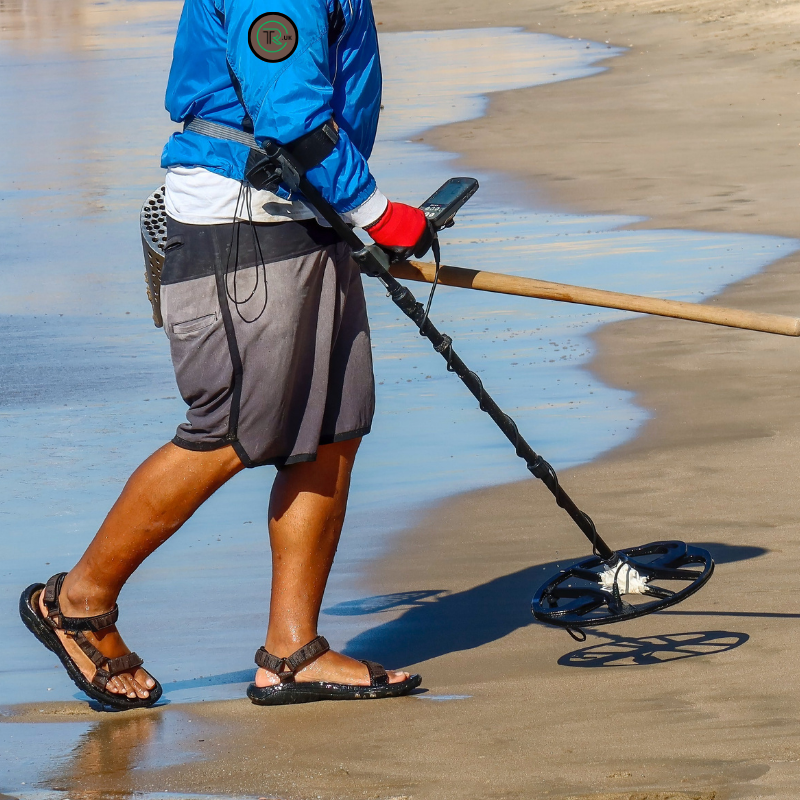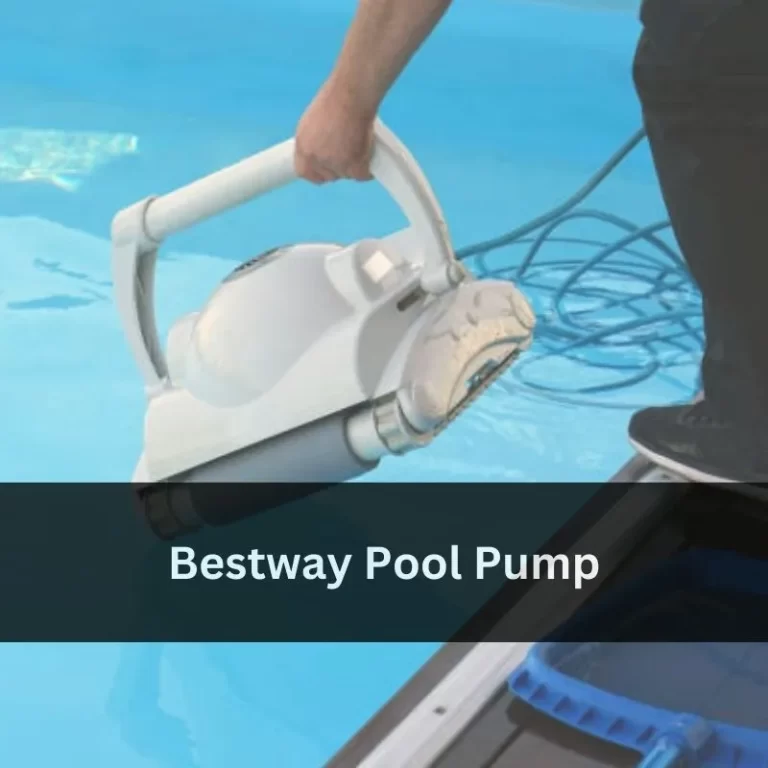10 Best Metal Detector For Beginners – Unveiling the Top Picks
Best Metal Detector For Beginners, The world of metal detecting is an exciting realm, filled with potential discoveries and treasures waiting to be unearthed. Getting started in this hobby is not as daunting as it may seem, especially with the right tools at your disposal. A good quality metal detector is the first and most crucial tool for any budding treasure hunter. In this guide, we aim to help beginners choose the best metal detector that is user-friendly, affordable, and perfectly suited for their needs. Let’s dive into the secrets beneath the surface and set you on your path to becoming a proficient treasure hunter.
What Factors Matter When Choosing a Beginner’s Metal Detector?
When choosing the best metal detector for beginners, there are several key factors to consider,
Ease of Use:
Look for a user-friendly metal detector. It should have an intuitive interface and straightforward controls.
Cost:
As a beginner, it’s not necessary to invest in the most expensive model. Start with a decent, affordable metal detector that offers good value for money.
Sensitivity and Discrimination:
These features determine the detector’s ability to differentiate between various types of metals and to detect objects at varying depths.
Adjustable Settings:
A good beginner’s metal detector will allow you to tweak settings such as sensitivity and discrimination as you become more proficient.
Portability:
A lightweight, portable design will make it easier to carry during long detecting sessions.
Durability:
The metal detector should be sturdy enough to withstand regular use in a variety of environments.
Common misconceptions and challenges in choosing a beginner’s metal detector.
When it comes to metal detecting for beginners, there are a few common misconceptions and challenges that often arise. For instance, some may think that finding valuable treasures is easy and plentiful, while others may struggle with understanding the different types of signals and how to properly interpret them.
Beginners may face challenges related to equipment selection, learning proper digging techniques, and understanding the legalities and ethical considerations of metal detecting. Despite these initial hurdles, embarking on the journey of metal detecting can be an exciting and rewarding hobby, filled with the anticipation of unearthing hidden treasures and uncovering fascinating pieces of history.
More Expensive Means Better
One of the common misconceptions is that the more expensive the metal detector, the better it will perform. While higher-priced models do offer advanced features, for a beginner, a more affordable machine with basic functionality can often be more than sufficient.
Distinguishing Between Metals
As a beginner, it can be a challenge to learn how to distinguish between different types of metals based on the signals given by the detector. This skill improves with practice and experience.
Misconception – Metal Detecting is Easy
Many beginners think that metal detecting is simple and that valuable items can be found with ease. The reality is that it requires patience, research, and a bit of luck.
Understanding Detector Settings
Learning how to properly adjust the detector’s settings for sensitivity, discrimination, and ground balance can be a steep learning curve for beginners. It’s key to learn these settings to enhance your detecting efficiency.
All Places are Equally Good for Detecting
Not all places are equally rich in potential finds. Therefore, it is important to dedicate time and effort to researching and exploring various locations before embarking on metal-detecting adventures. By thoroughly investigating different areas, considering historical significance, geological features, and anecdotal evidence, detectorists can increase their chances of stumbling upon valuable treasures and artifacts. This meticulous approach to selecting detecting spots is a critical aspect of successful metal-detecting endeavors.
Dealing with Environmental Factors
Weather, soil type, and electromagnetic interference can all impact a detector’s performance. Beginners must learn to account for these factors when detecting.
What are the types of Best Metal Detectors for beginners?
There are two main types ofBest Metal Detector For Beginners.
VLF (Very Low Frequency) metal detectors
Best Metal Detector For Beginners VLF (Very Low Frequency) metal detectors are the most common type of detectors and are highly recommended for beginners. They operate on two different coils: the transmitter coil, which sends out a magnetic field, and the receiver coil, which picks up the magnetic field that is altered when it hits a metal object.
VLF detectors are typically used for finding a wide variety of metallic objects and offer the ability to discriminate between different types of metal. This is particularly useful when searching in areas with a lot of trash or unwanted metal items. The learning curve for VLF detectors is relatively low, making them perfect for beginners who are just starting their metal detecting journey.
PI (Pulse Induction) metal detectors
PI (Pulse Induction) metal detectors are a great alternative to VLF detectors, especially for those searching in areas with highly mineralized soil or saltwater beaches. Best Metal Detector For Beginners work by sending out a series of pulses, which are used to detect the presence of metal. As these detectors do not discriminate between different types of metal as well as VLF detectors, they are less suitable for areas with a lot of unwanted metallic trash.
Their superior depth detection capabilities make them an excellent choice for treasure hunters searching for deeply buried items. PI detectors are generally more expensive and have a steeper learning curve than VLF models, but they can be an excellent investment for more experienced detectorists.
Where should you use a metal detector?

Public Land
Public parks and beaches are popular spots for metal detecting. However, it is essential to research the rules and regulations of the specific area you plan to detect in. Many public lands have restrictions on where and when metal detecting is allowed, so be sure to follow these guidelines.
Private Property
Before embarking on a search on private property, it is of utmost importance to obtain explicit permission from the landowner. This not only demonstrates a strong commitment to ethical conduct but also serves as a legal requirement in many jurisdictions around the world. By seeking permission, we acknowledge and respect the rights of the landowner while promoting a harmonious relationship between property owners and those who wish to access their land for specific purposes. Remember, gaining consent ensures a responsible and lawful approach to property exploration.
Historic Sites
Metal detecting at historic sites can be incredibly rewarding as there is often a higher chance of finding valuable artifacts. However, it’s essential to research and obtain proper permits before detecting at these locations, as they are often protected by law.
Natural Areas
Natural areas such as hiking trails, campgrounds, and picnic areas can also be excellent spots for metal detecting. However, it’s important to respect the environment and any potential cultural or historical artifacts that may be present.
Abandoned Sites
Abandoned sites such as old homesteads, ghost towns, and former battlefields can be full of hidden treasures and historical items. It’s essential to obtain permission before detecting at these locations and to leave the area as you found it.
How can I retrieve the items I discover using my metal detector?
After using advanced detection techniques and successfully identifying a potential object of interest, the next crucial step is to carefully excavate it from its burial spot. Depending on the specific location and depth of the target, it is recommended to utilize appropriate digging tools such as a trowel or handheld shovel to ensure precise and meticulous excavation.
During the digging process, it is of utmost importance to exercise caution and precision in order to avoid any damage to the artifact and minimize any disruption to the surrounding area or potential artifacts nearby. By exercising such care, we can preserve the historical context and integrity of the excavation site.
Once the artifact has been successfully retrieved, it is essential to take responsibility for the impact made during the excavation. This includes;
- Diligently refilling any holes created during the process
- Leaving the area in the same condition as it was found
- Respecting the historical significance and ecological balance of the site.
It is imperative to adhere to all local laws and regulations about the handling and preservation of historical artifacts, contributing to the proper management and conservation of our shared cultural heritage.
How do metal detectors work
Metal detectors operate by transmitting an electromagnetic field and then analyzing the disturbance of that field when it encounters a metallic object. The detector’s search coil, which is located at the base of the detector, acts as both a transmitter and receiver. It emits an electromagnetic field into the ground, and when it detects metal, it creates a magnetic field around the object that alters the frequency of the detector’s field.
This alteration is then detected by the receiver coil, which sends a signal to the control box, alerting the user to the presence of metal. Different types of detectors use varying technologies and frequencies to detect different types of metals at various depths in the ground.
List of 10 best metal detectors for beginners
1 . Garrett ACE 300 Metal Detector:
The Garrett ACE 300 Metal Detector is a top-tier device designed by Garrett Metal Detectors, known for its exceptional performance in treasure hunting and metal detection. With a submersible searchcoil, this detector is versatile and capable of underwater use, enhancing its range of applications. It is Best Metal Detector For Beginners.
Key Features and Specifications:
Pros
- Versatile use with a waterproof coil for underwater detection.
- Comes with essential accessories for an enhanced detecting experience.
- Adjustable length for user comfort and adaptability.
- Compact and lightweight, making it easy to transport.
- Reliable battery-powered operation.
Cons
- Requires 4 AAA batteries, which may need frequent replacement.
- Limited to a specific audience interested in metal detection.
2 . Fisher F22 Weatherproof Metal Detector:
The Fisher F22 Weatherproof Metal Detector, Best Metal Detector For Beginners crafted by Fisher Labs, is a highly capable all-purpose metal detector designed for enthusiasts of all ages. With its weatherproof construction, easy operation, and advanced features, it offers a reliable and efficient treasure-hunting experience.
Key Features and Specifications:
Pros
- Versatile detection capabilities for various metal targets.
- Weatherproof design enables use in challenging conditions.
- Easy operation with intuitive features for all user levels.
- Accurate target identification for efficient treasure hunting.
- Lightweight and ergonomic for comfortable use.
Cons
- Limited to a depth of nine inches for buried targets.
- Requires 2 AA batteries, which may need replacement over time.
- Best suited for beginners and intermediate users.
3 . Bounty Hunter TK4 Tracker IV Metal Detector:
The Bounty Hunter TK4 Tracker IV Metal Detector is a Best Metal Detector For Beginners robust and highly regarded metal-detecting tool designed by Bounty Hunter. Renowned for its durability and efficiency, this metal detector is equipped with features that make it well-suited for treasure hunting in challenging ground conditions.
Key Features and Specifications:
Pros
- Sturdy construction designed for extreme ground conditions.
- Versatile detection modes for different hunting scenarios.
- Preset ground balance enhances target detection accuracy.
- Disc/Notch control for better target discrimination.
- Waterproof coil extends usability to various environments.
Cons
- Limited to 2-Tone audio mode, potentially limiting audio feedback.
- The design may be considered less modern compared to some competitors.
- Requires 2 9V batteries, which may need replacement over time.
4 . Minelab Vanquish 540 Multi-Frequency Pinpointing Metal Detector:
The Minelab Vanquish 540 is a cutting-edge metal detector designed for adultsis Best Metal Detector For Beginners, featuring advanced technology and a user-friendly interface. With simultaneous multi-frequency capabilities and a lightweight, collapsible design, it offers a versatile and convenient solution for treasure hunters.
Key Features and Specifications:
Pros and Cons:
Pros
- Simultaneous multi-frequency technology for comprehensive metal detection.
- Easy “Turn On & Go” operation with automatic settings selection.
- Lightweight and collapsible design for portability.
- Four modes for versatile target and ground focus.
- Audio control and Iron Bias feature for enhanced treasure identification.
Cons
- While air-powered, it still requires 4 AA batteries for certain features.
- The collapsible design may be perceived as less sturdy compared to fixed structures.
- The advanced features may be overwhelming for beginners.
5 . T2LTD-BLK T2 Special Edition Metal Detector:
The Teknetics T2LTD-BLK T2 Special Edition Metal Detector is a high-performance device designed for depth and Best Metal Detector For Beginners , speed, and versatility in various metal detecting scenarios. With features like dual coils and advanced discrimination modes, it caters to both beginners and experienced treasure hunters.
Key Features and Specifications:
Pros
- Outstanding depth and speed capabilities for efficient metal detection.
- Versatile in coin shooting and relic hunting scenarios.
- Trigger-actuated target pinpointing enhances accuracy.
- Double filter discrimination modes for effective use in iron-infested areas.
- Comes with two waterproof searchcoils for added flexibility.
Cons
- May have a steeper learning curve for beginners.
- Requires four AA Alkaline batteries (not included).
- Relatively higher price point compared to some other detectors.
6 . Pyle Pinpointer Metal Detector
The Pyle Pinpointer Metal Detector is a handheld and portable device designed for an ultimate treasure hunt experience is Best Metal Detector For Beginners. With features like high sensitivity, comfortable arm support, and multiple detection modes, it aims to assist users in uncovering a variety of hidden objects, including gold, silver, coins, jewelry, and more.
Key Features and Specifications
Pros
- Built-in speaker with audio and vibration alerts.
- Five detection modes enhance targeting precision.
- Comfortable arm support and adjustable stem for user comfort.
- Portable and lightweight design for convenience.
- High sensitivity for effective metal detection.
Cons
- May not have the advanced features of larger metal detectors.
- The price point may be relatively higher compared to some other handheld detectors.
- Shipping and import fees may add to the overall cost.
7 . VEVOR Waterproof Metal Detector:
The VEVOR Waterproof Metal Detector is a professional-grade treasure hunting tool designed to capture tiny metal signals and provide precise detection. Best Metal Detector For Beginners With advanced features such as a 12-inch search coil, adjustable handle, and various detection modes, it is equipped to meet the needs of both indoor and outdoor metal detection enthusiasts.
Key Features and Specifications:
Pros and Cons:
Pros
- High precision detection for capturing tiny metal signals.
- Durable construction suitable for underwater use up to 10 feet.
- Portable design with an adjustable handle for user comfort.
- Versatile detection modes for various metal detecting goals.
- Bluetooth headset for signal alerts in noisy environments.
- Comprehensive package with rechargeable batteries and accessories.
Cons
- Shipping and import fees may contribute to the overall cost.
- Limited customer reviews available.
- Relatively higher price point.
8 . Barska BE12746 Winbest Pro-200 Metal Detector Field Kit:
The Barska BE12746 Winbest Pro-200 Metal Detector Field Kit is a comprehensive treasure hunting package that includes essential accessories to kickstart your metal-detecting adventure. Best Metal Detector For Beginners With features like a submersible search coil, adjustable sensitivity, accessory headphones, and a foldable shovel, this kit is designed for versatility and ease of use.
Key Features and Specifications:
C. Pros and Cons:
Pros
- Foldable metal shovel with a built-in compass for convenience.
- Padded and adjustable headphones for user comfort.
- Adjustable sensitivity for different metal detection needs.
- Submersible search coil for detecting in shallow water.
- Comprehensive metal detector kit with essential accessories.
Cons
- Relatively higher price point.
- Shipping and import fees may contribute to the overall cost.
- Limited customer reviews available.
9 . Garrett Metal Detectors ACE APEX Standard Package:
The Garrett Metal Detectors ACE APEX Standard Package is a cutting-edge metal detector designed by Garrett, a trusted name in the industry. Best Metal Detector For Beginners With a solid reputation and Amazon’s Choice recognition, this detector promises an efficient and user-friendly experience for both beginners and seasoned enthusiasts.
Key Features and Specifications
Pros:
Pros
- Accommodates users of different heights.
- Made of iron and metal for outdoor durability.
- Portable operation with included Lithium Polymer battery.
- Recognized for ease of use, accuracy, and beginner-friendliness.
- Suitable for various metal detecting scenarios.
Cons
- The overview lacks detailed information on specific detection features.splashes
- The IP541 rating provides moderate protection against dust and water
10 . Nokta Makro Simplex+ WHP Waterproof Detector
The Nokta Makro Simplex+ WHP is a feature-rich metal detector designed for versatility and practicality. With its waterproof construction and wireless headphones is Best Metal Detector For Beginners , it offers a user-friendly experience for both beginners and experienced metal detector enthusiasts.
Key Features and Specifications:
Pros
- Provides wide coverage and depth for efficient treasure detection.
- Durable mixture of plastic and metal for outdoor durability.
- Accommodates users of different heights for a personalized experience.
- Allows for underwater metal detecting in various environments.
Cons
- The product is currently unavailable, and availability information is uncertain.
Conclusion
The best metal detector for beginners are the Garrett Metal Detectors ACE APEX Standard Package and the Nokta Makro Simplex+ WHP Waterproof Detector. Both models are user-friendly, accommodating both novices and experienced detectorists. The Garrett model provides a versatile package suitable for various scenarios, while the Nokta Makro model comes with wireless headphones and is fully submersible, offering an array of detecting possibilities. However, availability of the Nokta Makro model is currently uncertain.

















